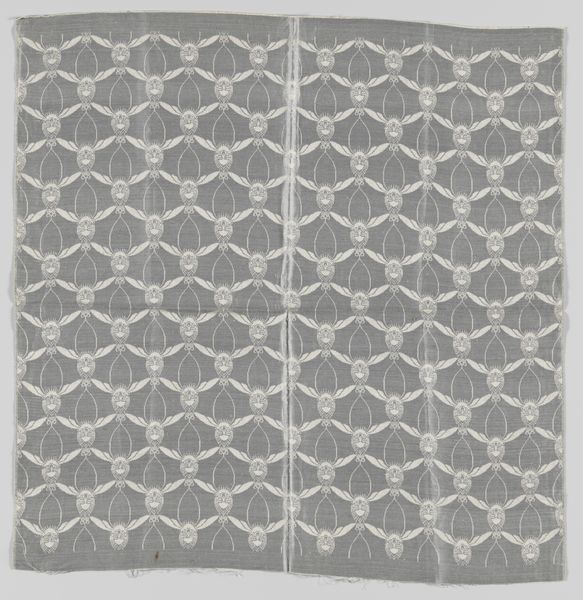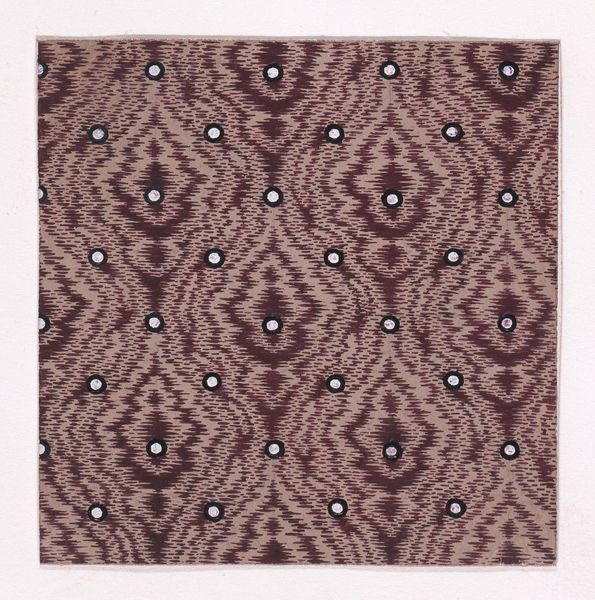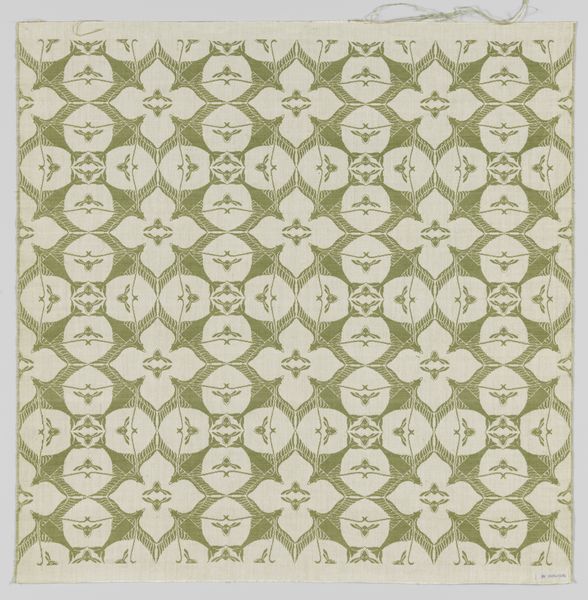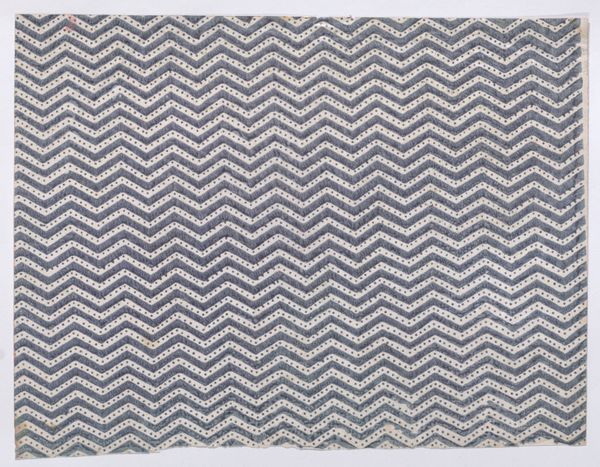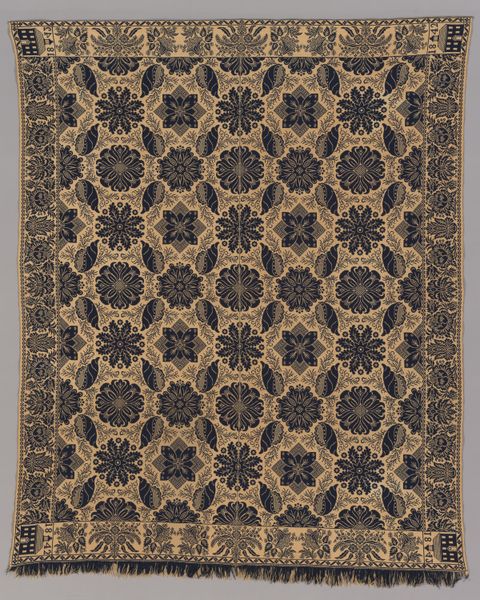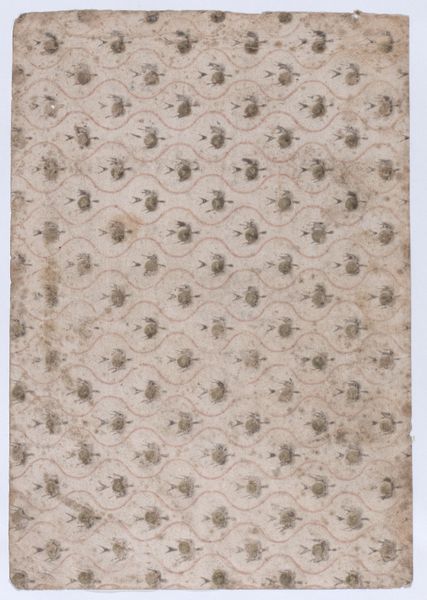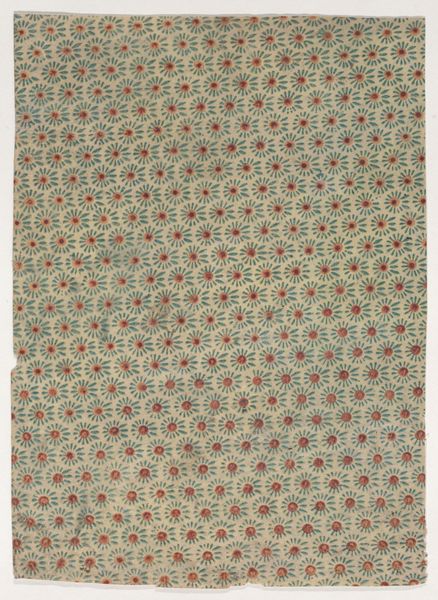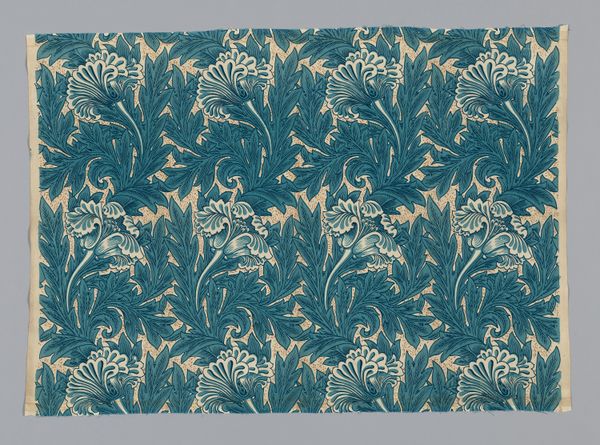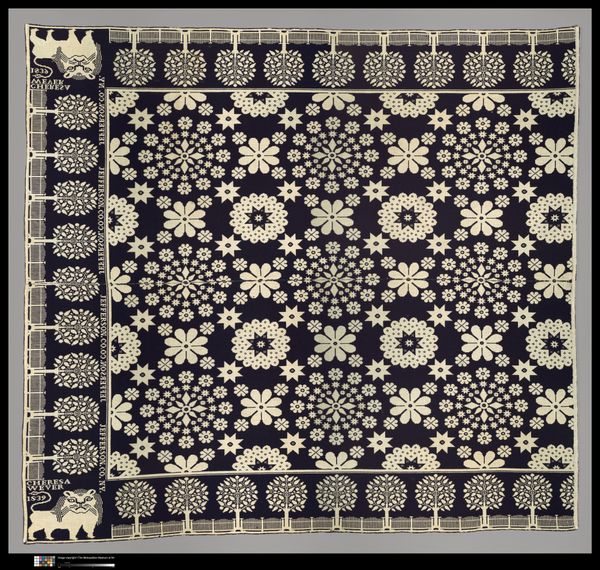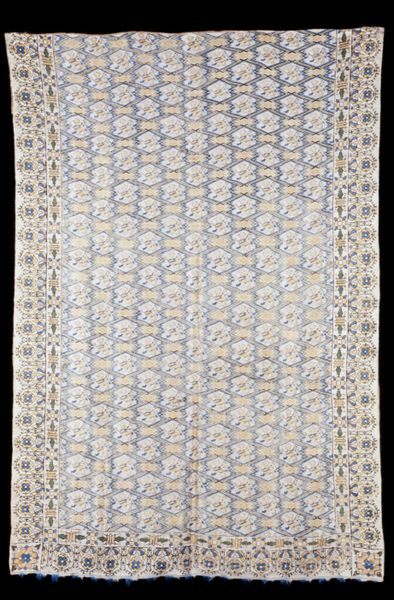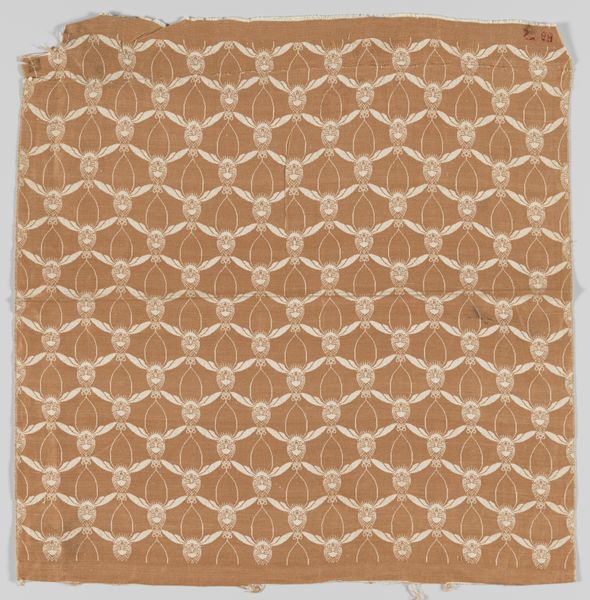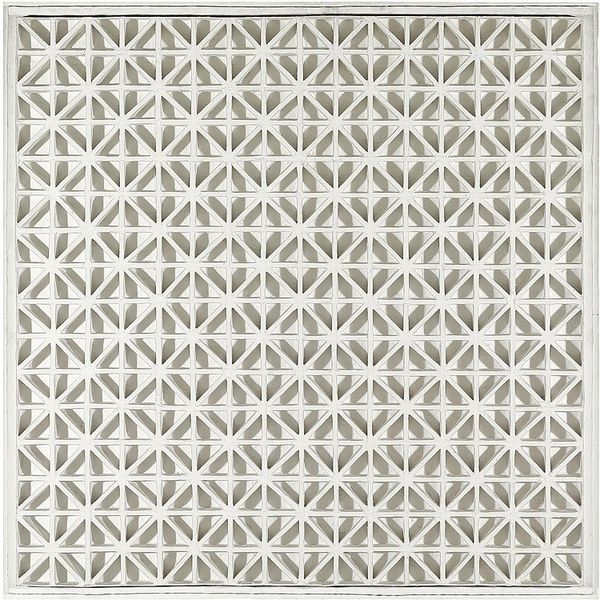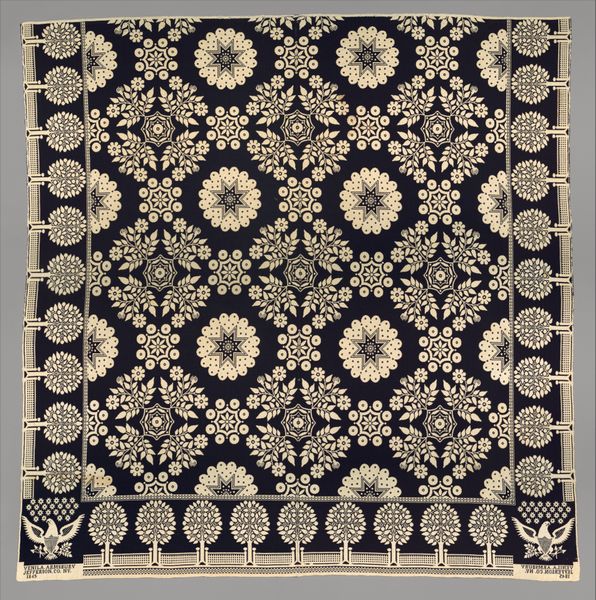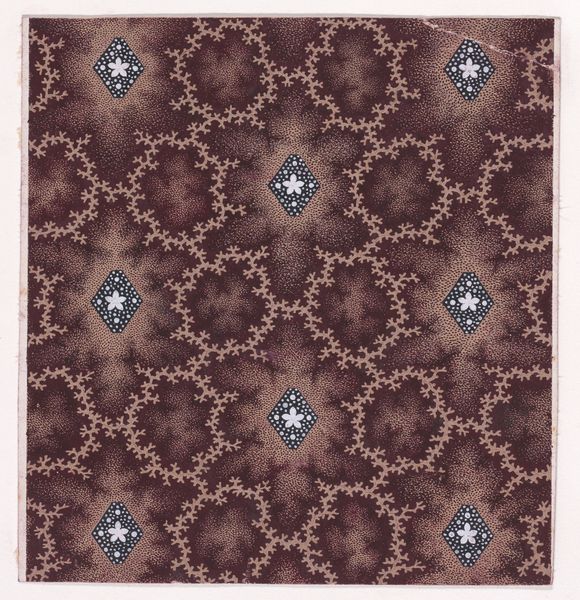
Staal bespanningsstof van linnendamast met dessin "Wilde Vlucht" 1911 - 1915
0:00
0:00
chrislebeau
Rijksmuseum
weaving, textile
#
organic
#
art-nouveau
#
weaving
#
textile
#
geometric pattern
#
organic pattern
#
vertical pattern
#
pattern repetition
#
decorative-art
#
imprinted textile
Dimensions: height 59.7 cm, width 58.5 cm
Copyright: Rijks Museum: Open Domain
Curator: Standing here before “Wilde Vlucht” or “Wild Flight,” we’re encountering a striking textile piece crafted between 1911 and 1915 by Chris Lebeau. It's a linen damask weaving, residing here at the Rijksmuseum. Editor: It gives off such a melancholic, yet assertive tone with its repeated owl-like pattern and that dark green background. Almost hypnotic, but in a subdued way. Curator: The owls, or perhaps stylized birds, immediately evoke the goddess Athena, symbol of wisdom and strategic warfare. Do you think that such imagery reflected anxieties during the start of the first World War? Editor: Potentially, although to see Athena perhaps we also need to consider Lebeau’s socio-political alignment. Lebeau was an avowed anarchist, so symbols of wisdom and protection may have had multiple meanings in his cultural and artistic language. Maybe the wisdom required to avoid war, or protect oneself? Curator: An apt consideration. Looking closer at the composition, I find these figures centrally placed and yet bound into a highly repetitive vertical pattern. Consider this an emblem of nature organized. Editor: Right, nature subjugated even, which would align well with Art Nouveau, often critiqued for its ornamental aesthetic, which essentially puts aesthetics over practicality and social needs. We often disregard the function, because the textile itself becomes another type of symbolic prison. Curator: Prison or sanctuary, perhaps, and either way such readings reveal complex interplays in symbolism that were common throughout Lebeau's broader ouevre. Ultimately his anarchist leanings certainly color readings around the control, whether one chooses to interpret those through art or through lived experiences. Editor: Well, these divergent readings, to me, exemplify why we must always question how historical circumstances affect our perceptions today. We've been contemplating design, yes, but also hidden commentary about nature, freedom, war, and more, still worth asking about a hundred years after the fact. Curator: Agreed. Reflecting upon the cyclical pattern, I feel like this damask design is a symbol itself: history echoing through time and medium.
Comments
No comments
Be the first to comment and join the conversation on the ultimate creative platform.
